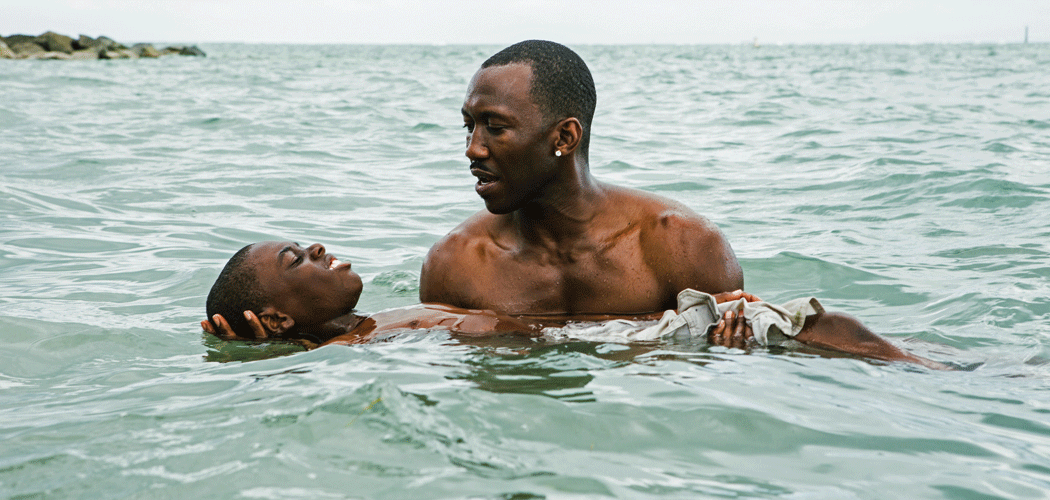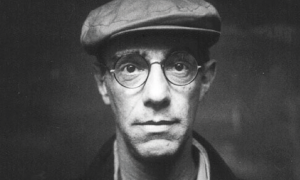BlackOut UK is a not-for-profit social enterprise run and owned by a volunteer collective of black gay men working to build a sense of community. Here, co-founder Antoine Rogers explains how Oscar nominated film Moonlight has inspired a series of unique events this LGBT History Month.
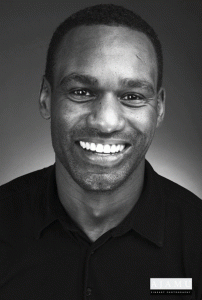 What is blkoutuk.com and why was it set up?
What is blkoutuk.com and why was it set up?
We conceived BlackOut to create spaces for conversations about and between black gay men; a community digital site supported by Twitter and a Facebook page. We didn’t see ourselves in black and LGBT media. When we did, we were often disappointed with the portrayals and underwhelmed by the conversations about black gay men. We chose to set up BlackOut and invite black gay men to join us to create the virtual content we want to see. Sometimes this content augments existing conversations, but more often BlackOut content creates new conversations. We want to see evidence of our existence that reflects and celebrates our aspirations, hopes and fears. We also want to create an informative, engaging and entertaining community site with a variety of material from book and film recommendations with themes that explore daddy issues and femininity to experiences of travelling.
You’re aiming to build a sense of community between black queer men in the UK – how do you hope to do this?
We get together for contributors workshops and during these we discuss how people can contribute to the site in ways they are most comfortable and capable. Workshops are spaces where we connect and support one another’s effort to contribute; a space to talk about what’s going on in the world.
Blkoutuk.com has been promoting the Oscar nominated film Moonlight – what’s the film about and why should people try and see it?
Moonlight is a gay film and possibly a love story, depending on how you interpret it. Based on the original story In Moonlight Black Boys Look Blue, it explores many layers of love and takes you on a journey of self-truth, friendship and intimacy, forged in childhood between two men. Throughout the film, the silences are as powerful as the dialogue and vulnerability is captured in the eyes and subtle movements of black men – themes rarely seen in mainstream films – provoking new and interesting conversations about masculinity.
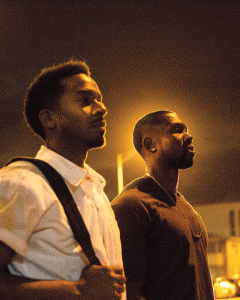
You’re screening Moonlight this Thursday (9 Feb) and hosting a follow-up event on Sunday (12 Feb) too. What will be happening at these events?
Moonlight sparked a global conversation about black masculinity and masculinity more broadly, so we wanted to create an event to give space for that conversation and for other conversations about black queer men. Our events will be in an intimate space; not too big but enough room to have a dance, and there’ll be a virtual wallpaper with photos, films and video clips to provoke interesting conversations. We’ve also got some amazing live performances lined up. We want folks to rock up hang out and join the conversation.
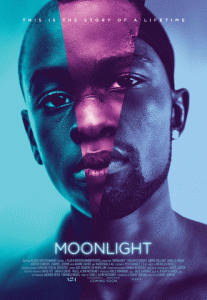
Which black LGBT icons in history do you admire?
The power, rhythm and truth of James Baldwin’s words is the evidence of my existence. I Am Not Your Negro, an amazing film based on Baldwin’s writing and activism, has just been nominated for an Oscar for best documentary. Bayard Rustin, openly gay throughout his life, taught Martin Luther King everything he knew about nonviolent civil disobedience, and the documentary Brother Outsider chronicles Rustin’s pivotal impact on the Black American Civil Rights. And the Brixton based artist Rotimi Fani-Kayode’s experimentation with colour photography of the black male nude used symbols derived from his native Nigerian culture. He explored the homoerotic desire of black males in his book Black Male/White Male (1988) and his contribution to Ecstatic Antibodies (1990).
What would you like to say to black LGBT readers who do not feel part of the wider community?
There are a lot of LGBT people who don’t feel part of the wider community: older; transgendered; bisexual; and disabled people – black or otherwise – just to name a few. Ultimately one can spend a lot of time and energy having conversations about spaces and places that exclude you. These are important conversations to have and we must find ways to be more inclusive. I love the LGBT community. There’s such promise in what we can be if we truly valued all the colourful and diverse perspective that constitute our community. But I also think of Nina Simone who said, “You have to learn to get up from the table when love is no longer being served.” I love a food metaphor for living life! Getting up from the table does not mean to leave the house all together but perhaps find another room. Or create a room of your own and invite others to join you. We want to invite people to sit at the BlackOut UK table. So come to our social event on Sunday (12 Feb) and our WriteUp Workshop two weeks later (Sun 26 Feb) where established writers will help people develop their writing skills. Come join the conversation!
More information on BlackOut UK and the screening of Moonlight at blkoutuk.com
Twitter: @BlkOutUK



